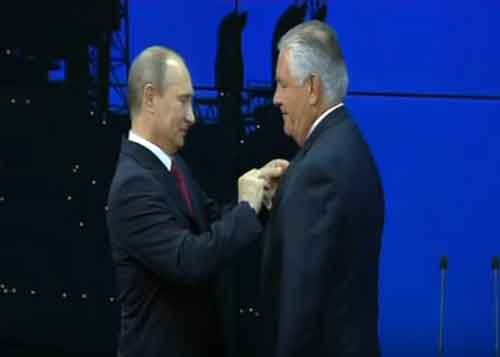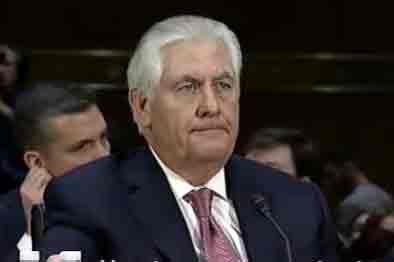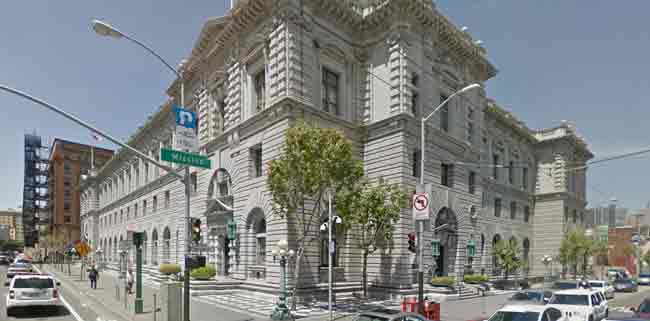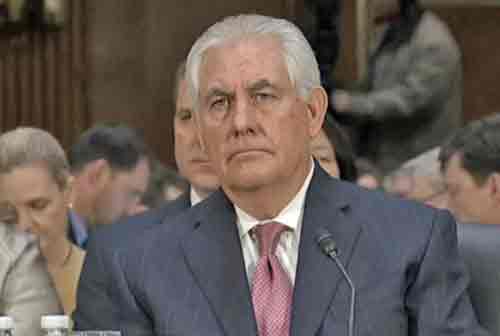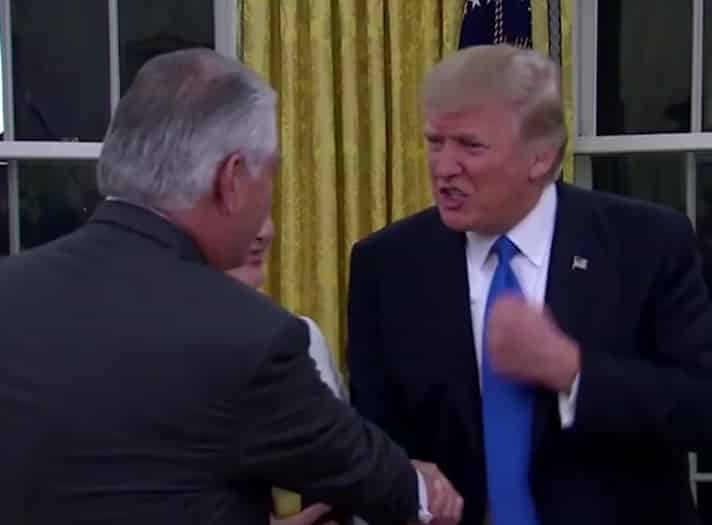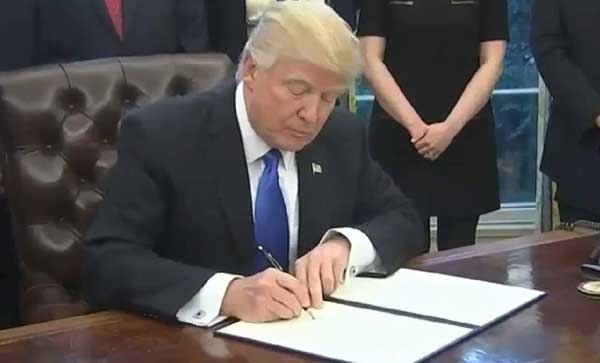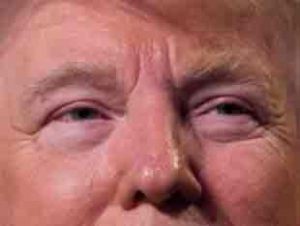 U.S. President Donald Trump signed a new executive order Monday, barring travelers from six countries to the United States for three months, and all refugees for four months, after federal appeals judges blocked a similar order from implementation last month.
U.S. President Donald Trump signed a new executive order Monday, barring travelers from six countries to the United States for three months, and all refugees for four months, after federal appeals judges blocked a similar order from implementation last month.
“This executive order is a vital measure for strengthening our national security,” Secretary of State Rex Tillerson said at press conference announcing the new ban. “It is the president’s solemn duty to protect the American people.”
In an attempt to ensure a smoother rollout of the travel ban and protect it from legal scrutiny, the new executive order differs from the January 27 version in several key aspects. Among the most notable changes is the exclusion of Iraqis from the list of suspended travelers. The new order bans nationals and citizens from Iran, Libya, Somalia, Sudan, Syria, and Yemen.
The new ban includes a grace period and will take effect on March 16. It will not affect legal permanent residents – those with green cards – or travelers who already had valid visas as of January 27, 2017.
Monday’s order also removes a provision indefinitely barring Syrian refugees from the U.S. Also removed is language giving preference to “religious minorities,” a provision that had been widely seen as an attempt to follow through on Trump’s promise to prioritize Christian refugees.
Iraq promises more cooperation[xyz-ihs snippet=”adsense-body-ad”]Iraq was removed from the list after officials there promised increased cooperation with U.S. officials regarding the vetting process, according to a senior official with the Department of Homeland Security (DHS), who spoke to reporters on a conference call.
Baghdad, a key ally in the U.S. fight against Islamic State militants, had complained when Iraq was included in the original travel ban.
“The close cooperative relationship between the United States and the democratically-elected Iraqi government, the strong U.S. diplomatic presence in Iraq, the significant presence of U.S. forces in Iraq, and Iraq’s commitment to combat ISIS justify different treatment,” said a Q&A sheet distributed by the Trump administration.
Critics of the original order questioned whether the seven countries affected — all majority-Muslim — were targeted for religious reasons. The DHS official on Monday again denied those accusations, saying: “This is not a Muslim ban in any way, shape or form.”
The DHS also stressed the temporary nature of the order, though senior officials later suggested that the travel ban may be expanded after the 90 days expire. They also said that other countries could be added to the list.
Reaction
The revised order is unlikely to satisfy many critics. That includes the ACLU, which filed legal challenges against the original order. In a statement, the ACLU said the revised ban “has the same fatal flaws as the original.
“The only way to actually fix the Muslim ban is not to have a Muslim ban. Instead, President Trump has recommitted himself to religious discrimination, and he can expect continued disapproval from both the courts and the people,” said Omar Jadwat, director of the ACLU’s Immigrant Rights Project. “What’s more, the changes the Trump administration has made, and everything we’ve learned since the original ban rolled out, completely undermine the bogus national security justifications the president has tried to hide behind and only strengthen the case against his unconstitutional executive orders.”
Pages: 1 2

